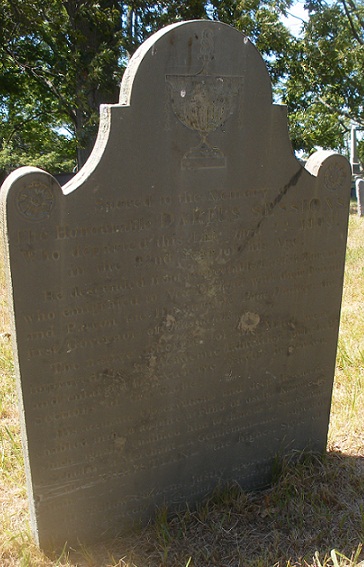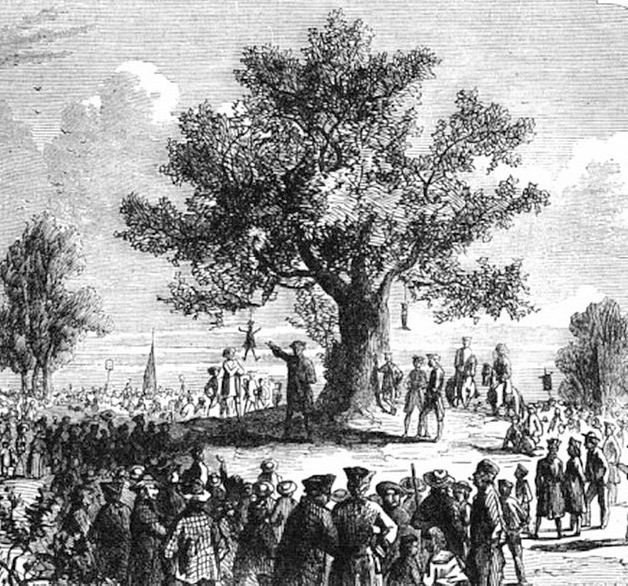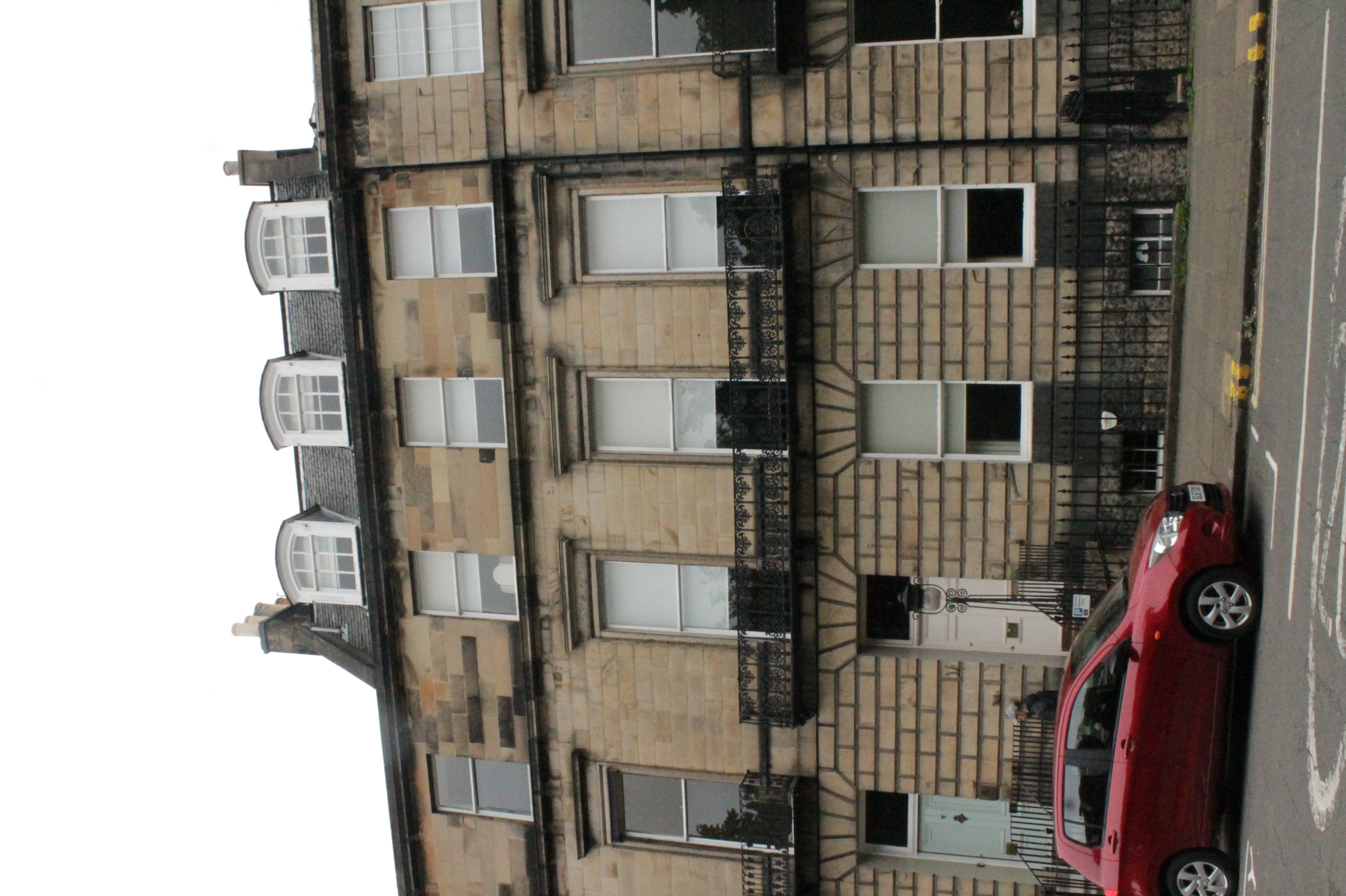|
Darius Sessions
Darius Sessions (17 August 1717 – 27 April 1809) was a deputy governor of the Colony of Rhode Island and Providence Plantations during the buildup to the American Revolutionary War. He was heavily involved in moderating the effects of the ''Gaspee'' Affair, and was instrumental in keeping the perpetrators from being identified. Early life Born in Pomfret, Connecticut, Sessions was the son of Nathaniel Sessions and Joanna Corbin. His family was fairly well-to-do, and owned a lot of land in eastern Connecticut. Sessions attended Yale College, graduating in 1737, and subsequently worked in Rhode Island in the mercantile business. In 1746, during King George's War, he was part owner of the privateer sloop ''Reprisal''. Later, in 1750, he was the master of the schooner ''Smithfield'', working in the West Indies. He was also likely involved in the distillery business of his father-in-law, William Antram, who had a stillhouse just north of Sessions' home in Providenc ... [...More Info...] [...Related Items...] OR: [Wikipedia] [Google] [Baidu] |
Joseph Wanton
Joseph Wanton Sr. (15 August 1705 – 19 July 1780) was a merchant and governor in the Colony of Rhode Island and Providence Plantations from 1769 to 1775. Not wanting to go to war with Britain, he has been branded as a Loyalist, but he remained neutral during the war, and he and his property were not disturbed. Born in Newport of a prominent Quaker family that was very involved in Rhode Island politics, Wanton became a highly successful merchant. He is depicted in the satirical 1750s painting by John Greenwood, '' Sea Captains Carousing in Surinam'', with other prominent merchants and seamen from the colony. As a merchant, he was involved in the trade of most goods, including slaves, and at one point his ship with a cargo of rum and slaves was confiscated off the coast of Africa by a French privateer. With no known civic background, Wanton was elected as governor of the colony in 1769, and served for six years. With the American Revolutionary War on the horizon, he was involv ... [...More Info...] [...Related Items...] OR: [Wikipedia] [Google] [Baidu] |
French And Indian War
The French and Indian War (1754–1763) was a theater of the Seven Years' War, which pitted the North American colonies of the British Empire against those of the French, each side being supported by various Native American tribes. At the start of the war, the French colonies had a population of roughly 60,000 settlers, compared with 2 million in the British colonies. The outnumbered French particularly depended on their native allies. Two years into the French and Indian War, in 1756, Great Britain declared war on France, beginning the worldwide Seven Years' War. Many view the French and Indian War as being merely the American theater of this conflict; however, in the United States the French and Indian War is viewed as a singular conflict which was not associated with any European war. French Canadians call it the ('War of the Conquest').: 1756–1763 The British colonists were supported at various times by the Iroquois, Catawba, and Cherokee tribes, and the French ... [...More Info...] [...Related Items...] OR: [Wikipedia] [Google] [Baidu] |
Stephen Hopkins (politician)
Stephen Hopkins (March 7, 1707 – July 13, 1785), a Founding Father of the United States, was a governor of the Colony of Rhode Island and Providence Plantations, a List of chief justices of the Rhode Island Supreme Court, chief justice of the Rhode Island Supreme Court, and a signer of the Continental Association and United States Declaration of Independence, Declaration of Independence. He was from a prominent Rhode Island family, the grandson of William Hopkins who was a prominent colonial politician. His great grandfather Thomas Hopkins (settler), Thomas Hopkins was an List of early settlers of Rhode Island#Signers of Providence agreement for a government, 1640, original settler of Providence Plantations, sailing from England in 1635 with his cousin Benedict Arnold (governor), Benedict Arnold who became the first governor of the Rhode Island colony under the Rhode Island Royal Charter, Royal Charter of 1663. As a child, Hopkins was a voracious reader, becoming a serious stu ... [...More Info...] [...Related Items...] OR: [Wikipedia] [Google] [Baidu] |
Sessions
Sessions may refer to: * Sessions (surname), a surname * Sessions (clothing company), an American apparel company * Sessions Clock Company, an American clock manufacturer in the early 20th century Arts, entertainment, and media * ''The Sessions'' (film), a 2012 American independent drama film based on the true story of Mark O'Brien * ''Sessions'', a short-lived 1991 HBO series produced by Billy Crystal, starring Elliott Gould and Michael McKean * ''Sessions'' (Beatles album), an unreleased compilation album by The Beatles * Sessions (Fred Neil album) * ''Sessions'' (compilation series), a series of DJ mix albums released by Ministry of Sound * ''Sessions'' (Descendents EP), a 1997 EP by the punk rock band the Descendents * ''Sessions'' (This Condition EP) * ''The Sessions'' (album), a 1995 compilation album by English punk/rock music group the Stranglers * Sessions@AOL, a special avenue of programming conducted by AOL Music * The Sessions Band The Sessions Band is an America ... [...More Info...] [...Related Items...] OR: [Wikipedia] [Google] [Baidu] |
Thomas Hutchinson (governor)
Thomas Hutchinson (9 September 1711 – 3 June 1780) was a businessman, historian, and a prominent Loyalist politician of the Province of Massachusetts Bay in the years before the American Revolution. He has been referred to as "the most important figure on the loyalist side in pre-Revolutionary Massachusetts". He was a successful merchant and politician, and was active at high levels of the Massachusetts government for many years, serving as lieutenant governor and then governor from 1758 to 1774. He was a politically polarizing figure who came to be identified by John Adams and Samuel Adams as a proponent of hated British taxes, despite his initial opposition to Parliamentary tax laws directed at the colonies. He was blamed by Lord North (the British Prime Minister at the time) for being a significant contributor to the tensions that led to the outbreak of the American Revolutionary War. Hutchinson's Boston mansion was ransacked in 1765 during protests against the Stamp Ac ... [...More Info...] [...Related Items...] OR: [Wikipedia] [Google] [Baidu] |
Province Of Massachusetts
The Province of Massachusetts Bay was a colony in British America which became one of the thirteen original states of the United States. It was chartered on October 7, 1691, by William III and Mary II, the joint monarchs of the kingdoms of England, Scotland, and Ireland. The charter took effect on May 14, 1692, and included the Massachusetts Bay Colony, the Plymouth Colony, the Province of Maine, Martha's Vineyard, Nantucket, Nova Scotia, and New Brunswick; the Commonwealth of Massachusetts is the direct successor. Maine has been a separate state since 1820, and Nova Scotia and New Brunswick are now Canadian provinces, having been part of the colony only until 1697. The name Massachusetts comes from the Massachusett Indians, an Algonquian tribe. It has been translated as "at the great hill", "at the place of large hills", or "at the range of hills", with reference to the Blue Hills and to Great Blue Hill in particular. Background Colonial settlement of the shores of Mas ... [...More Info...] [...Related Items...] OR: [Wikipedia] [Google] [Baidu] |
Loyalist
Loyalism, in the United Kingdom, its overseas territories and its former colonies, refers to the allegiance to the British crown or the United Kingdom. In North America, the most common usage of the term refers to loyalty to the British Crown, notably with the loyalists opponents of the American Revolution, and United Empire Loyalists who moved to other colonies in British North America after the revolution. Historical loyalism 18th century North America In North America, the term ''loyalist'' characterised colonists who rejected the American Revolution in favour of remaining loyal to the king. American loyalists included royal officials, Anglican clergymen, wealthy merchants with ties to London, demobilised British soldiers, and recent arrivals (especially from Scotland), as well as many ordinary colonists who were conservative by nature and/or felt that the protection of Britain was needed. Colonists with loyalist sympathies accounted for an estimated 15 per cent to 20 ... [...More Info...] [...Related Items...] OR: [Wikipedia] [Google] [Baidu] |
Committees Of Correspondence
The committees of correspondence were, prior to the outbreak of the American Revolutionary War, a collection of American political organizations that sought to coordinate opposition to British Parliament and, later, support for American independence. The brainchild of Samuel Adams, a Patriot from Boston, the committees sought to establish, through the writing of letters, an underground network of communication among Patriot leaders in the Thirteen Colonies. The committees were instrumental in setting up the First Continental Congress, which met in Philadelphia. Function The function of the committees was to alert the residents of a given colony of the actions taken by the British Crown, and to disseminate information from cities to the countryside. The news was typically spread via hand-written letters or printed pamphlets, which would be carried by couriers on horseback or aboard ships. The committees were responsible for ensuring that this news accurately reflected the views, ... [...More Info...] [...Related Items...] OR: [Wikipedia] [Google] [Baidu] |
John Montagu (Royal Navy Officer)
Admiral John Montagu (1719–1795) was an English naval officer and colonial governor of Newfoundland. Naval career He was born in 1719, son of James Montagu of Lackham, Lacock, Wiltshire (died 1747), and great-grandson of James Montagu of Lackham (1602–1665), third son of Henry Montagu, 1st Earl of Manchester. Montagu began his naval career in the Royal Naval Academy, Portsmouth on 14 August 1733. He was promoted lieutenant in 1740 and served on and, in 1744, was present at the Battle of Toulon. In 1757 he was present at the execution of Admiral John Byng. Promoted to Rear-Admiral in 1770, he served as Commander-in-Chief of the North American Station from 1771 to 1774. In March 1772, Montagu was involved in the Gaspee Affair as the commanding officer of Lieutenant William Duddingston, where he unsuccessfully tried to identify and have prosecuted the raiders who attacked Dudingston's ship. He was promoted Vice-Admiral in 1776 and then appointed Governor and commander ... [...More Info...] [...Related Items...] OR: [Wikipedia] [Google] [Baidu] |
William Dudingston
Rear Admiral William Duddingston (1740–1817) was an 18th-century Scottish commander in the Royal Navy, of fame for the Gaspee Affair, ''Gaspee'' Affair, one of the precursors to the American War of Independence. Life He was born in November 1740 in the parish of Kilconquhar in the East Neuk of Fife, the third son of 14 children to James Duddingston (1695-1768) and his wife Margaret Gillespie. The family lived at St Ford (or Sandford) just south-west of Kilconquhar. From 1752 to 1755 he served as a merchant seaman on the Fife coast. He appears as a Royal Navy lieutenant (navy), lieutenant in 1759 but was possibly a midshipman from 1755 to 1759. In September 1768 he was given command of . In March 1772 the ship was ordered to go to Rhode Island to patrol the waters to prevent smuggling of contraband goods in evasion of taxation. In these seizures the crew were awarded a percentage of the value of the goods seized, which was a strong incentive. Seizures were therefore ofte ... [...More Info...] [...Related Items...] OR: [Wikipedia] [Google] [Baidu] |
Narragansett Bay
Narragansett Bay is a bay and estuary on the north side of Rhode Island Sound covering , of which is in Rhode Island. The bay forms New England's largest estuary, which functions as an expansive natural harbor and includes a small archipelago. Small parts of the bay extend into Massachusetts. There are more than 30 islands in the bay; the three largest ones are Aquidneck Island, Conanicut Island, and Prudence Island. Bodies of water that are part of Narragansett Bay include the Sakonnet River, Mount Hope Bay, and the southern, tidal part of the Taunton River. The bay opens on Rhode Island Sound and the Atlantic Ocean; Block Island lies less than southwest of its opening. Etymology "Narragansett" is derived from the southern New England Algonquian word meaning "(people) of the small point of land". Geography The watershed of Narragansett Bay has seven river sub-drainage basins, including the Taunton, Pawtuxet, and Blackstone Rivers, and they provide freshwater input at ... [...More Info...] [...Related Items...] OR: [Wikipedia] [Google] [Baidu] |
Warren, Rhode Island
Warren is a town in Bristol County, Rhode Island, United States. The population was 11,147 at the 2020 census. History Warren was the site of the Pokanoket Indian settlement of Sowams located on a peninsula within the Pokanoket region. The region consisted of over 60 settlements under the authority of Chief Massasoit (sometimes called Osamequin) who controlled the land from Plymouth to the eastern shores of Narragansett Bay. English colonists Edward Winslow and Stephen Hopkins from Plymouth Colony first visited there in July, 1621. Winslow and John Hampden saved Massasoit's life two years later and gained an important ally and lifelong friend. The colonists set up a trading post by 1632 on the banks of the Kickamuit River where they traded English goods for furs and other items. Roger Williams was banished from Salem, Massachusetts, in January, 1636, and fled to Sowams, becoming ill on the way. He was sheltered by Massasoit in Sowams until he recovered over the winter month ... [...More Info...] [...Related Items...] OR: [Wikipedia] [Google] [Baidu] |







